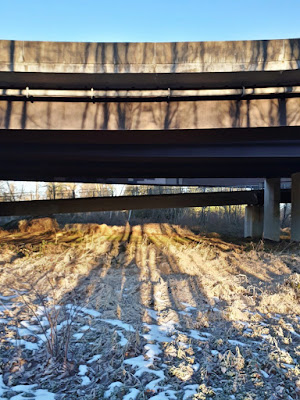Down and Up
Dear Eugene,
Today's Ash Wednesday. None of us is truly fasting unless from something if we are to lose would hurt us like hell.
I am reading "In the Realm of Hungry Ghosts" by Dr. Gabor Maté, "who for twelve years practiced medicine in Vancouver’s notorious Downtown Eastside – North America’s most concentrated area of drug use," very close to my church. An area I would walk by every week, often more than once.
In his opening chapter, Dr. Maté writes:
"No society can understand itself without looking at its shadow side. I believe there is one addiction process, whether it is manifested in the lethal substance dependencies of my Downtown Eastside patients; the frantic self-soothing of overeaters or shopaholics; the obsessions of gamblers, sexaholics and compulsive Internet users; or the socially acceptable and even admired behaviours of the workaholic. Drug addicts are often dismissed and discounted as unworthy of empathy and respect. In telling their stories my intent is twofold: to help their voices to be heard and to shed light on the origins and nature of their ill-fated struggle to overcome suffering through substance abuse. They have much in common with the society that ostracizes them. If they seem to have chosen a path to nowhere, they still have much to teach the rest of us. In the dark mirror of their lives, we can trace outlines of our own."
No one can understand oneself without looking at one's shadow side. What are we to fast from if we don't even know, can't even admit to what is hurting us, eating us up, let alone speaking to other's suffering from that of our own?
Dr. Maté calls our addiction, whatever that gives us our highs, the "Keys of Paradise":
"Intuitively, we all know it’s better to feel than not to feel. Beyond their energizing subjective charge, emotions have crucial survival value. They orient us, interpret the world for us and offer us vital information. They tell us what is dangerous and what is benign, what threatens our existence and what will nurture our growth. Imagine how disabled we would be if we could not see or hear or taste or sense heat or cold or physical pain. Emotional shutdown is similar. Our emotions are an indispensable part of our sensory apparatus and an essential part of who we are. They make life worthwhile, exciting, challenging, beautiful and meaningful.
When we flee our vulnerability, we lose our full capacity for feeling emotion. We may even become emotional amnesiacs, not remembering ever having felt truly elated or truly sad (…)
The wondrous power of a drug is to offer the addict protection from pain while at the same time enabling her to engage the word with excitement and meaning (…)
The drug restores to the addict the childhood vivacity she suppressed long ago."
Addicts we all are. We are just more resourceful than others to make our cravings respectable, even praiseworthy. Did you ever feel like this, Eugene, that in social gatherings we are really just exchanging tales of addiction and obsession in our deed and thought, commending and recommending our own brand of darkness to each other? If we are to stop even once in a long while and listen to ourselves...
They're lining up the prisoners
And the guards are taking aim
I struggled with some demons
They were middle class and tame
I didn't know I had permission to murder and to maim
You want it darker
We kill the flame
Cohen spoke the above to me this morning on my way walking to work. His words changed the sight and sound of what I was taking in, lifting me up by pushing me down, destroyed to create.
Things literally shifted around me, like it was a different world.
Yours, Alex



Comments
Post a Comment